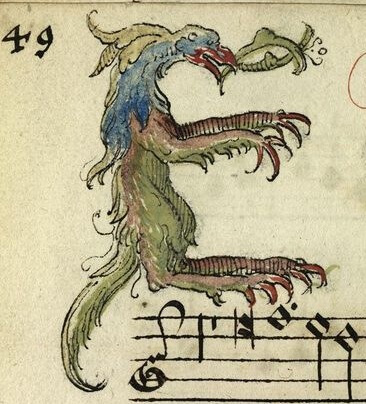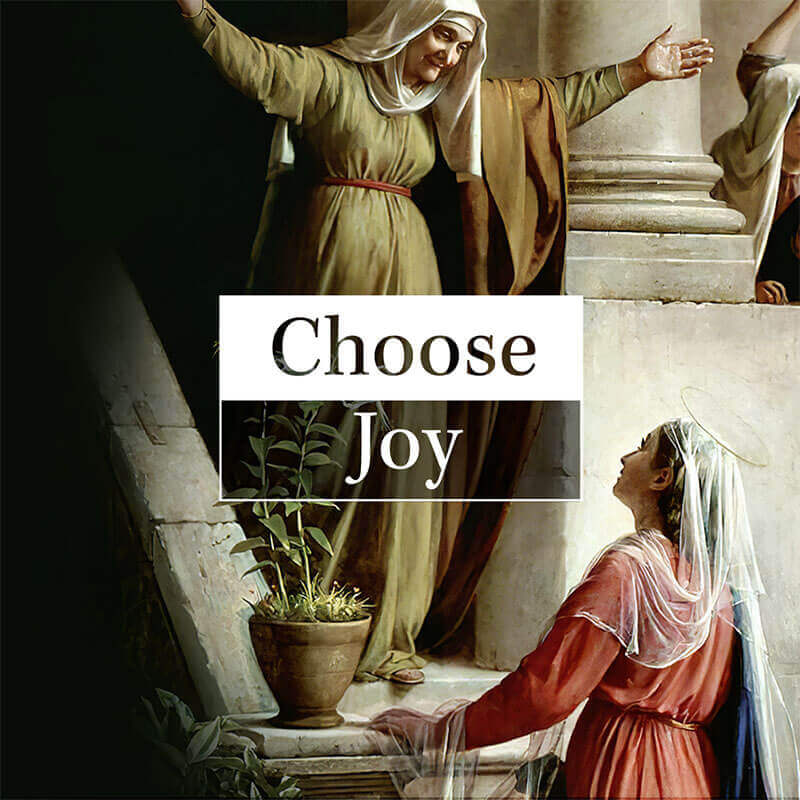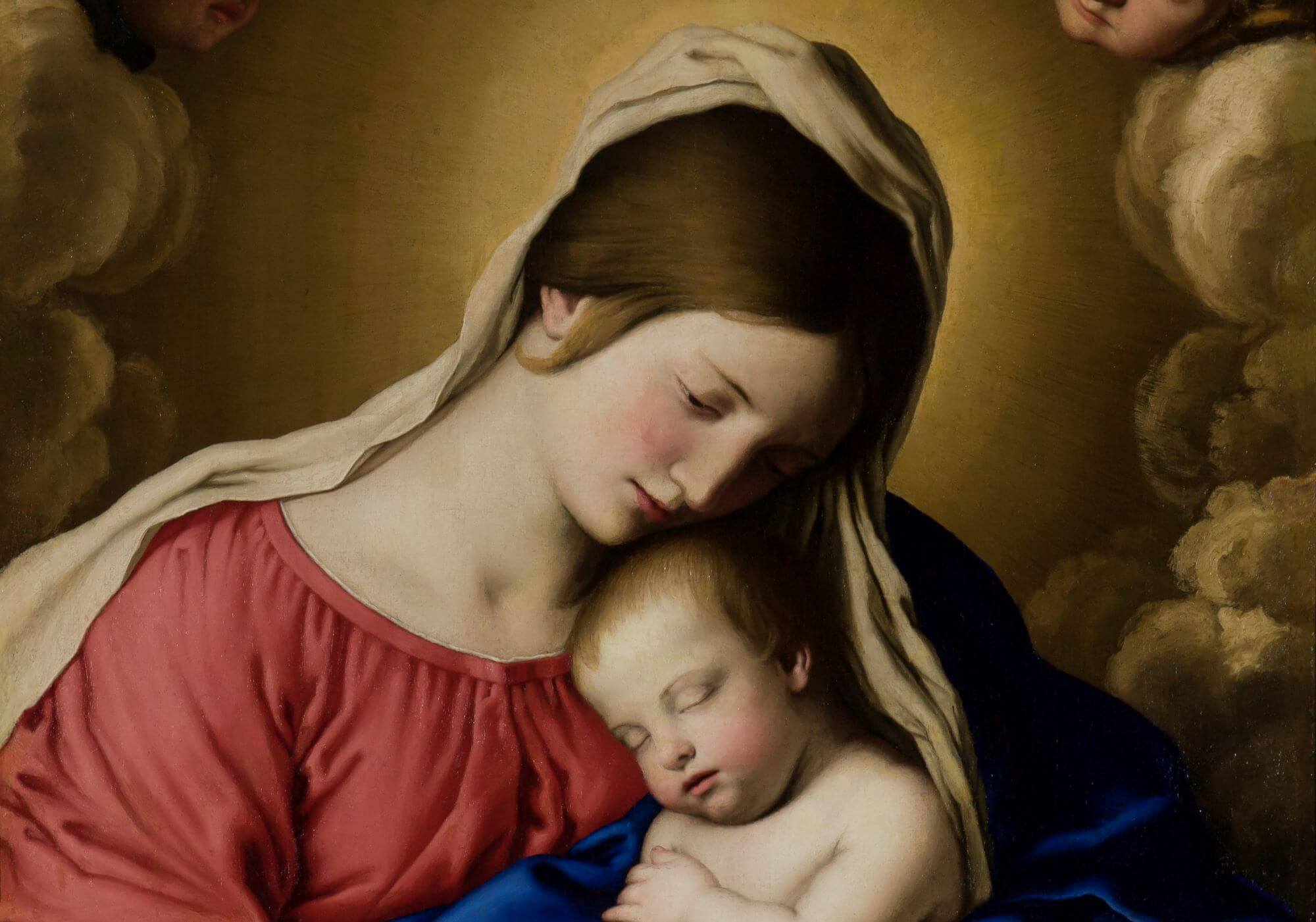
These things I have spoken to you, that my joy may be in you, and that your joy may be full.
John 15:11
Joy is mentioned often in Scripture. In fact, the words “joy” or “rejoice” appear over 400 times! God calls us to be joyful, even amongst the many sorrows of this life. Yet we all know that it is not always easy to remain joyful. We might be facing a serious hardship. Perhaps we are in the midst of feeling a kind of low-grade sadness for no apparent reason, or maybe it is simply the day-to-day doldrums that are getting in the way of joy. There are common obstacles to joy that we should be on the lookout for.
Are any of these five things getting in the way of your joy?
#1. A lack of trust in the sovereignty of God.
Here is a basic fact: As Christians, we sometimes forget that God loves us and wants what is best for us. And we forget that He is all-powerful, all-knowing, and all-good.
I can easily fall into this trap. Either I simply forget to seek God, or deep down I don’t really believe that He can or that He will help.
It saddens me that trustful surrender is a struggle for me. Although I say the words “Thy will be done” every time I utter the Lord’s Prayer, that does not mean that I regularly put them into practice. The truth is, even when I say those words quietly under my breath, as I often do throughout the day, something gets in the way of my complete trust in God. (Spoiler alert: that something is me.)
Underneath the surface of that prayer lies a shadowy doubt that sometimes emerges and whispers, “If I turn it over to you, Lord, do you really have this?” or “What if it doesn’t turn out as I’d hoped?” or (if I’m really honest) “Couldn’t you conform your will to mine, Lord?”

I recently saw a meme that read, “Until we believe that prayer is worth our time, we won’t make time for prayer.” Perhaps a similar line of thinking can be applied to trustful surrender: until I believe in God’s eternal goodness and in His infinite sovereignty, it will be difficult to trust in His will.
If I truly contemplated the immeasurable goodness of God, would I still find it hard to surrender to His will? How often do I think about the sovereign nature of God? Why do I hesitate to unite my will to His if I believe that God can do all things and that He wills my highest good?
The truth is that nothing I do takes God by surprise. God is not making things up as He goes along, as though I suddenly confront Him with some action that He had not expected. There is nothing outside of His sovereign and redemptive plan. And yet, how often do I really think about how much He loves me and stands always ready to forgive me and welcome me with open arms?
Scripture constantly assures us of the unfathomable mercy of God:
But this I call to mind, and therefore I have hope: The steadfast love of the Lord never ceases, his mercies never come to an end; they are new every morning; great is thy faithfulness.
Lamentations 3:21
God’s activity in the world is a continuous act of sharing His goodness with all of His creation. “The divine will,” says St. Thomas Aquinas, “wills nothing except by reason of its goodness.” God cannot act otherwise. His will is perfect and cannot change. Therefore it is impossible for God to will anything other than the ultimate good for His creatures.
We do not always understand this truth. Especially when faced with tragedy and sorrow in this life.
It is helpful to remember that supernatural peace is not experienced as the absence of conflict or even of pain; rather, it is experienced as a serenity of soul that perseveres through conflict and pain.
Peace I leave with you; my peace I give to you. I do not give to you as the world gives. Do not let your hearts be troubled, and do not let them be afraid.
John 14:27
One of the characteristics of the saints was their joyful, tranquil disposition despite the obvious sufferings and heavy crosses that they endured. It was possible for them to find happiness and peace in the midst of pain because they had an unshakable trust in God’s goodness.
Have you asked yourself this question: “Do I trust in God?”
If you pause in answering this question or if in your heart you know the answer is not a resounding YES, then perhaps you need to bring to mind the sovereignty of God. So many verses in Scripture tell us to trust in the goodness of Our Lord, but we often miss them. The following are just a few verses that can be meditated on or even memorized to help remind us of God’s goodness and power:
And we know that for those who love God all things work together for good, for those who are called according to his purpose.
Romans 8:28
“I form light and create darkness; I make well-being and create calamity; I am the LORD, who does all these things.”
Isaiah 45:7
May the God of hope fill you with all joy and peace in faith so that you overflow with hope by the power of the Holy Spirit.
Romans 15:13
For by him all things were created, in heaven and on earth, visible and invisible, whether thrones or dominions or rulers or authorities—all things were created through him and for him. And he is before all things, and in him all things hold together.
Colossians 1:16–17
Rejoice always. Pray continually. Give thanks in every situation because this is God’s will for you in Christ Jesus.
1 Thessalonians 5:16-18
#2. Living in the past or the future; not in the present moment.

The duties of each moment are shadows beneath which the divine action lies concealed.
Fr. Jean Pierre de Caussade, S.J.
Every Tuesday I watch my grandson, who is almost two years old. His name is Teddy and so I fondly call it Tuesdays with Teddy.
Every Tuesday I am struck by how much Teddy lives in the present moment. It is remarkable to witness.
In fact, we know that children are experts at living in the moment. We, as adults, have a much harder time doing that. And that’s not entirely our fault. We are somewhat hard-wired to live in the past and in the future—it’s instinctual. After all, we learn from our past successes and mistakes, and we are motivated by the things we need to do in the future. Since our minds see time in a continuous and linear fashion, we are constantly moving into the future.
Yet it is the Author of all of creation who gave us time, and He continues to give us the present moment in which to exist.
There is no moment at which God does not present Himself under the guise of some suffering, some consolation, or some duty. All that occurs within us, around us and by our means covers and hides His divine action. […] Could we pierce the veil and were we vigilant and attentive, God would reveal Himself continuously to us and we should rejoice in His action in everything that happens to us. At every occurrence we should say: “Dominus est! It is the Lord!”
Fr. Jean-Pierre de Caussade
Learning how to live in the present moment requires constant discipline. It’s easy for our minds to sink into past memories, or to be stirred into agitation when we think about the future. We must instead train ourselves to focus on the now.
Intentional recollection of His presence, which surrounds and sustains us, is a great aid to train our minds to seek God’s will for us in the present moment. This recollection is called “practicing the presence of God.” To do this we simply turn our mental gaze to the thought of God’s presence (as if He were in the room with us, or sitting next to us, or better yet, dwelling within our souls through sanctifying grace), and speak to Him as we complete the tasks of the day.
Living in the present moment allows us to experience God’s providence in the smallest details of our lives. This is the true spiritual reality which we must begin to live in our minds and hearts and which will enable us to experience the true peace and joy that come with living according to God’s will.
For me, this is easier said than done and it is something I need to work on daily.
At least on Tuesdays with Teddy, I can be happily reminded!
#3. Not taking advantage of the Sacrament of Penance.

A few years ago, after hearing a suggestion from Fr. Matthew Kauth in the Good Catholic series I Firmly Resolve, I began to make a daily examination of conscience (usually before bed). This little act helps me to recognize sins that I might otherwise ignore. It is easy to miss those habits of sin—the ones we have somehow “made treaties with” as Fr. Kauth refers to them, and which are often hidden under the veil of our daily routine.
When we regularly examine our conscience, we can’t help but grow in humility as we acknowledge our sinfulness.
By making a daily examination, we are more apt to recognize sin in our lives and to go to Confession more regularly. Humility is the virtue that opposes the sin of pride. It is not a surprise that the Sacrament of Penance is a direct attack on pride. If we approach Confession with the truth of our sins ever before us, we cannot help but be humbled. God uses even our sinfulness to work for His glory if we let Him.
There is a wonderful harmony that exists between a person’s true freedom and God’s freedom. Those who are free (unfettered) give God the freedom to do what He wills. When you are free of all inhibitions and impediments, God is also free to fill you as He wills.
Fr. Wilfred Stinnison, Into Your Hands, Father
God wants us to come to Him with everything, most especially our sinfulness so that He can make us whole. “No one who conceals transgressions will prosper, but one who confesses and forsakes them will obtain mercy” (Proverbs 28:13).
Are you in the habit of making a daily examination of conscience? Have you been to Confession lately?
It has been said that happiness comes from outward things while true joy is experienced inwardly and rises up from the soul. Meditate on this quote from Cardinal Joseph Ratzinger, the future Pope Benedict XVI:
“In the Sacrament of Penance, the simple confession of one’s guilt is presented with confidence in God’s merciful goodness. It is important to do this without falling into scruples, with the spirit of trust proper to the children of God. In this way confession can become an experience of deliverance, in which the weight of the past is removed from us and we can feel rejuvenated by the merit of the grace of God who each time gives back the youthfulness of the heart.”
Cardinal Ratzinger, May 2, 2002
Confession can be a key to unlocking joy because it sets us free from what binds us and fetters us. If you haven’t been to Confession in a long time and you are feeling a sense of joylessness, try returning to this beautiful Sacrament.
#4. Loving the wrong things.
God created us not only for love but also for freedom and happiness. Our freedom and happiness, however, are connected to what we love. To put it simply, if we love the right things, we will be free and happy; if we love the wrong things, they will ensnare us and steal our joy.
We are able to experience interior freedom and happiness when our priorities are properly aligned.
When anyone came to the Fathers of the desert and desired to be received by them he was asked: ‘Do you bring an empty heart that it may be filled with the Holy Ghost? And they were right, for a heart that is filled with the things of earth has no room for the love of God. He who brings a vessel filled with earth to the spring will never be able to fill it with water until he empties it of the earth with which it is filled.
St. Alphonsus Liguori
It is not only external goods and worldly possessions that our hearts tend to cling to. We also cling to ourselves, to our own self-love, or to what others have that we think we desire. We begin to measure ourselves and other people by our own false standards instead of God’s true standards. As a result, we are often guided from day to day not by the Holy Spirit as we should be, but instead by our own selfish desires.

Envy is one of the ways this manifests itself. Envy begins as a discomfort or displeasure when we perceive someone else gaining something good. It could be a promotion at work, a new house or car, or some attention to another that we crave for ourselves. Even the success of another person or their children can bring us to envy.
Envy involves our sadness in reaction to someone else’s good…This is why it is said to rob us of our joy.
Kevin Vost, The Seven Deadly Sins
Not long ago I woke up in the middle of the night and couldn’t fall back asleep. My thoughts seemed to have a force all their own and it appeared as if I was just along for the ride. I began to pray and—while doing so—detected a sense of dread that I couldn’t put my finger on. In the darkness, it seemed as if each minute torturously dragged on.
After some period of time, I sensed that the feelings were caused by an interior sorrow over a particular sin that was weighing me down. While I understood that pride was at the heart of it, it was in those hushed nighttime moments that I finally recognized it for what it really was: envy.
Thankfully I was able to recall a few spiritual tips I had learned from a talk given at a women’s conference. The speaker suggested three kinds of brief prayers when experiencing feelings of envy—one prayer asking God to see us for who we truly are, one prayer for the person or situation we envy, and one prayer of thanksgiving for all the blessings God has bestowed on us (and to be specific about what they are).
The speaker explained the profound nature of this type of prayer, saying that when we immediately take action to root out the sin of envy, we practice virtue.
Author Kevin Vost explains that sometimes the sense of envy comes unbidden and can remain morally neutral until we act on it. But if we aren’t careful it will become a problem for us. In other words, we need to combat it with prayer:
We are going to feel this like a reflex, unless we have, through the grace of God, and through our own cooperative efforts, developed the kind of virtues that can recondition this kind of envious reflex and perhaps transform it into a knee-jerk reaction, so to speak, of joy and not sorrow at another’s good.
Kevin Vost, The Seven Deadly Sins
#5. Not remembering to ask Our Blessed Mother to borrow her heart.
Everything can be taken from a man but one thing: the last of the human freedoms—to choose one’s attitude in any given set of circumstances, to choose one’s own way.
Victor Frankl

I only recently learned, in Fr. Michael Gaitley’s book, 33 Days To Morning Glory, that we can ask Mary to borrow her Immaculate Heart. On page 113, Fr. Gaitley explains how St. Teresa of Calcutta is just one of the saints who tells us to ask Our Blessed Mother, “Mary, lend me your Immaculate Heart.“
What better way to love Jesus than with the perfect, humble, Immaculate Heart of His Mother?
As a creature, Mary experienced the sorrows of this life, and yet she retained an interior peace and even joy. It is difficult for many of us to imagine that amidst the pain and suffering that comes with life, we can still be joy-filled. Yet by asking Mary to lead us to this joy, we are asking for this very thing.
…Mary makes the lessons of the Cross into something sweet, and she pours her motherly love and solace into our every wound. Going to her and giving her permission to do her job truly is the “surest, easiest, shortest and the most perfect means” to becoming a saint.
A brand new Good Catholic Series, Choose Joy, addresses this beautiful truth—that we can choose joy! By examining the Joyful Mysteries of the Rosary, we can see how Mary herself chose to be joyful. We see how she never wavered in her trust in the Lord. You can join this Good Catholic series here: Choose Joy.
For the Christian, joy is much more than a fleeting emotion. Instead, Galatians 5:22 lists joy as a fruit of the Holy Spirit, meaning that joy is a result of the indwelling of the Holy Spirit with His seven gifts.
There is a “but” here. Just because joy is a gift that we receive does NOT mean that our role is purely passive. Joy is a gift we can seek out, and a gift that we can dispose ourselves to receive more readily and more consciously. Ask yourself, am I joy-filled? If not, maybe one of these things is holding you back.






